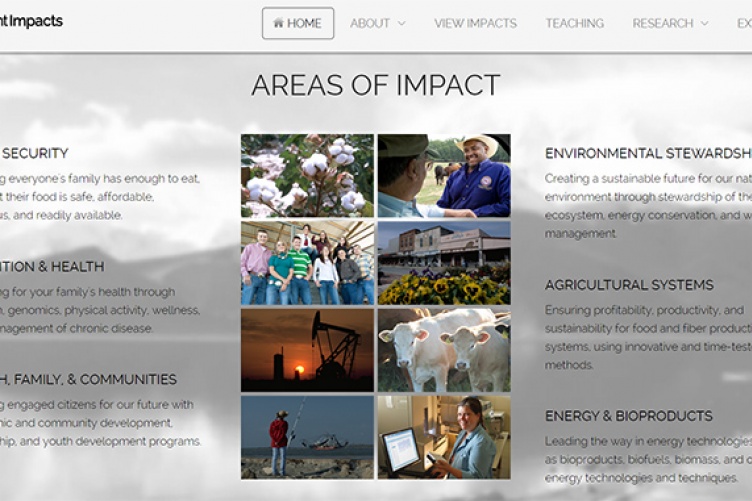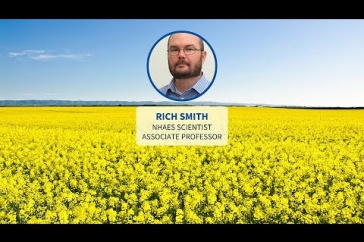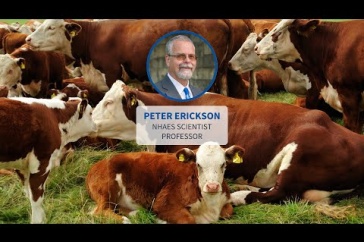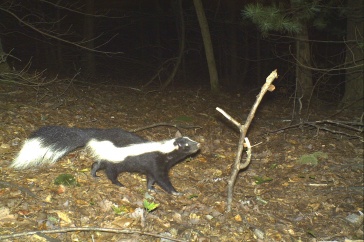
The University of New Hampshire announces the official launch of and participation in the National Land-Grant Impacts website, a centralized online resource that highlights the teaching, agricultural experiment station research, and cooperative extension efforts by land-grant universities.
Specifically, the website provides access to university or regional-specific impact stories that document experiment station research and extension programming planned, performed, and implemented by the University of New Hampshire and other land-grant universities. The website, as a cooperative effort of the land-grant universities, represents a single voice for the agricultural experiment station and cooperative extension arms of the land-grant universities.
“The research and outreach partnership of the NH Agricultural Experiment Station and UNH Cooperative Extension plays a critical role in helping maintain efficient, economically viable, and environmentally sustainable food, forest, and farming systems in the state and region. Our efforts have a direct, positive impact on the bottom line of Granite State farmers, producers, and growers who capitalize on our information and technologies that address their ongoing challenges,” said Jon Wraith, director of the NH Agricultural Experiment Station and dean of the UNH College of Life Sciences and Agriculture.
“The opportunity to provide a coordinated national perspective to the importance of land-grant colleges and institutions and the tangible impacts to U.S. citizens is an important step in the right direction. A fundamental distinction UNH shares with its land-grant colleagues is the charge to be an engaged partner with communities and agricultural and natural resource stakeholders. In short, we take pride in making a difference in people’s lives,” said Ken La Valley, dean and director of UNH Cooperative Extension.
Impact statements relay the results and impact of experiment station research and extension education programming. Information lists include contact information for university research and extension project leads and updates on funding, project implementation, or extension education impact. Impact statements are categorized according to six focus areas: food security; nutrition and health; youth, family, and communities; environmental stewardship; agricultural systems; and energy and bioproducts.
“Articulating positive changes as a result of agricultural experiment station and cooperative extension research and education is critical today. The Board on Agriculture Assembly (BAA) celebrates the launch of this web site,” said Barbara Allen-Diaz, vice president, University of California, and chair, BAA Policy Board of Directors. “Having a searchable source for outcomes of our work will help to communicate the value of our research and extension programs in our land grant universities.”
The website also informs users about the history of the land-grant university system and how its mission has evolved since the systems’ founding. UNH, like all land-grant universities, is committed to a three-fold mission of teaching, research and extension. The website fully demonstrates why teaching, research, and extension are interrelated and how they better UNH students, improve communities in the Granite State, and benefit the nation.
“The Land-Grant Impacts website is a new tool that will better inform the American people and the international community of the significant agricultural research, education and extension impacts taking place at land grant universities across our nation, which offer practical solutions to today’s critical societal challenges. This website will help policy makers and the public learn more about this work that is partially supported with NIFA funding,” said Dr. Sonny Ramaswamy, director, National Institute of Food and Agriculture, U.S. Department of Agriculture.
UNH is one of the 238 public research universities, land-grant institutions, state university systems, and affiliated organizations represented by The Association of Public and Land-grant Universities. The land-grant university system has affiliations in all 50 states, the four U.S. territories, the District of Columbia, Mexico, and Canada.
Founded in 1887, the NH Agricultural Experiment Station at theUNH College of Life Sciences and Agriculture is UNH’s original research center and an elemental component of New Hampshire's land-grant university heritage and mission. We steward federal and state funding to provide unbiased and objective research concerning diverse aspects of sustainable agriculture and foods, aquaculture, forest management, and related wildlife, natural resources and rural community topics. We maintain the Woodman and Kingman agronomy and horticultural farms, the Macfarlane Greenhouses, the Fairchild Dairy Teaching and Research Center, and the Organic Dairy Research Farm. Additional properties also provide forage, forests and woodlands in direct support to research, teaching, and outreach
-
Written By:
Lori Tyler Gula, PhD | NH Agricultural Experiment Station | lori.gula@unh.edu | 603-862-1452



















































